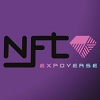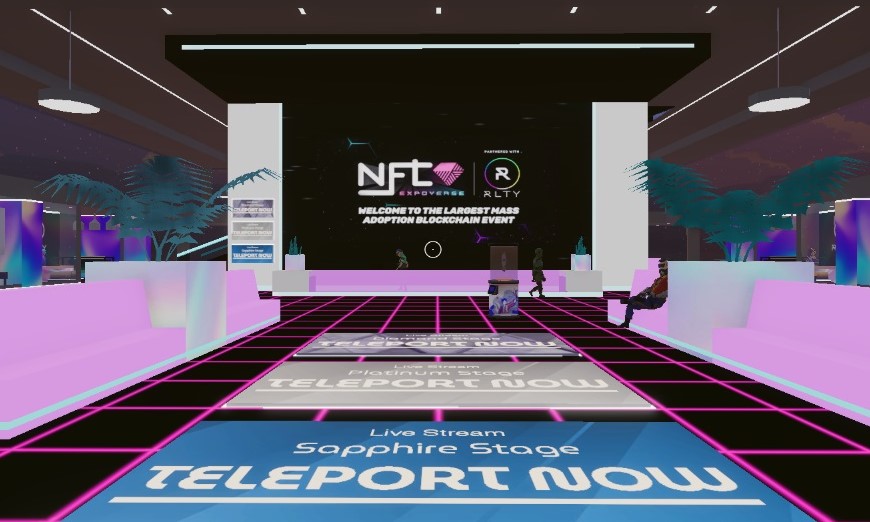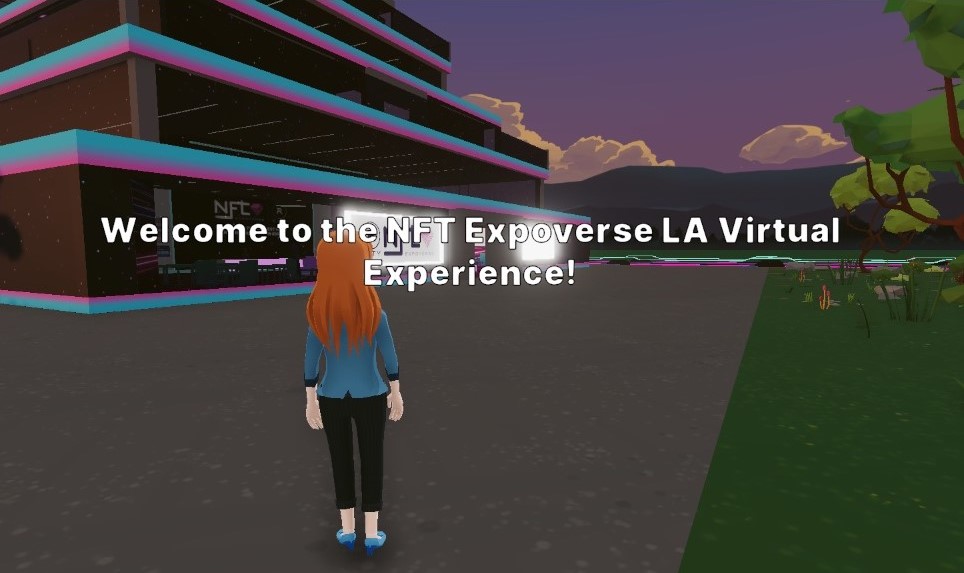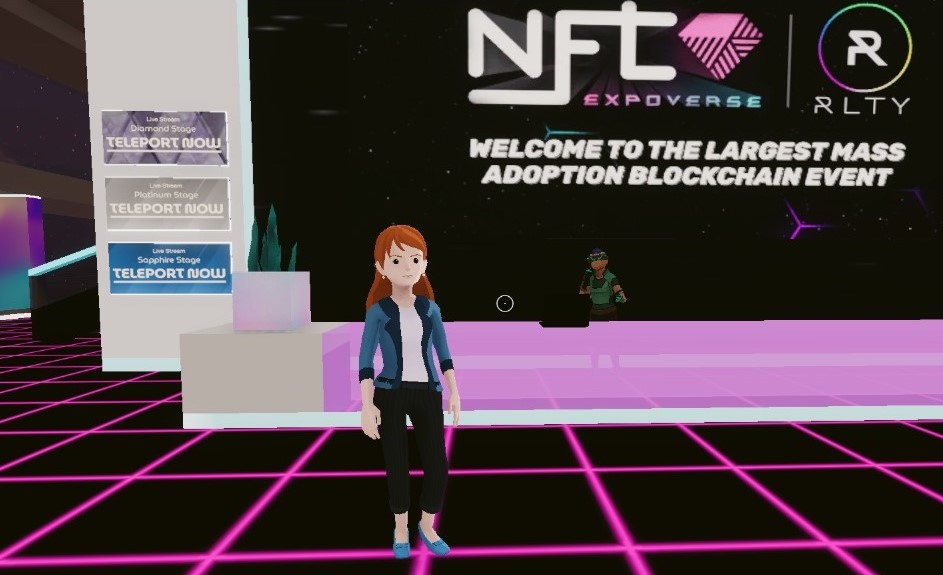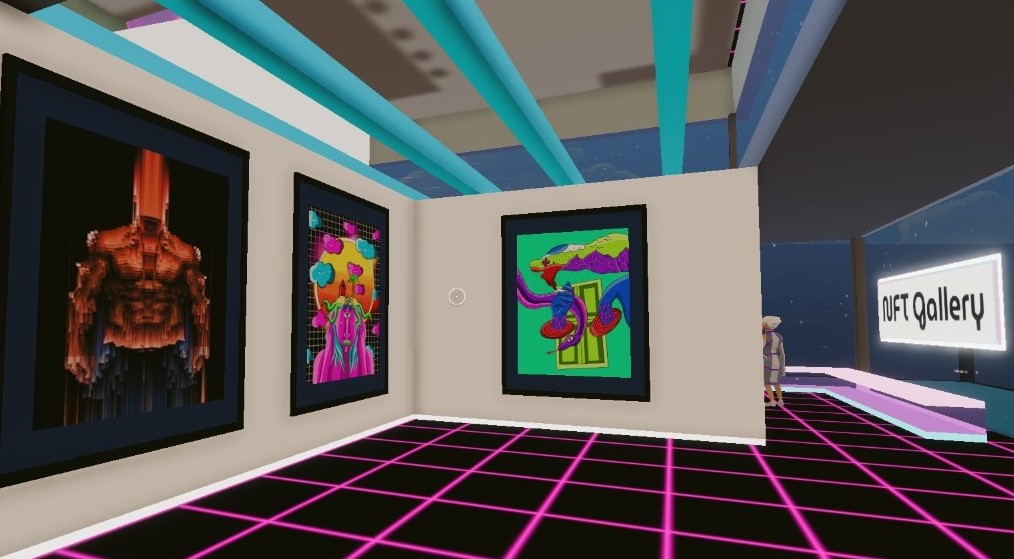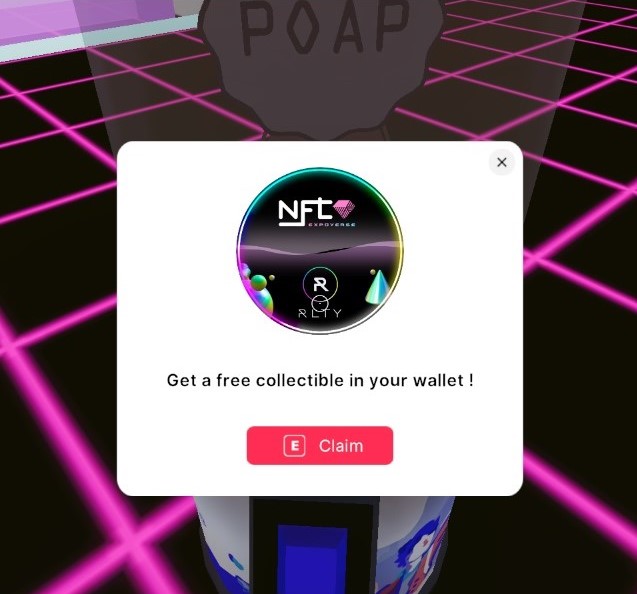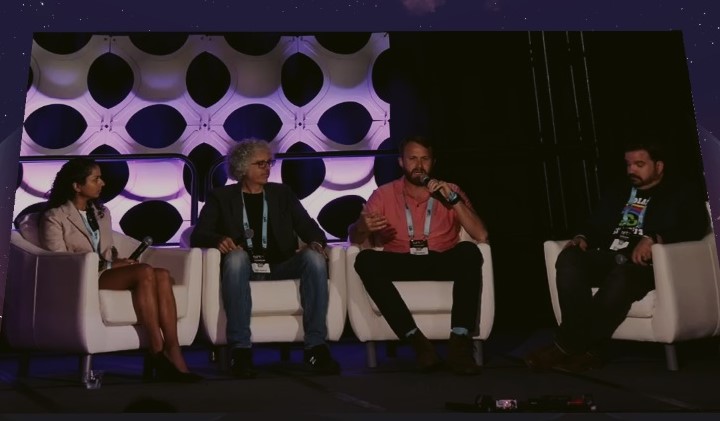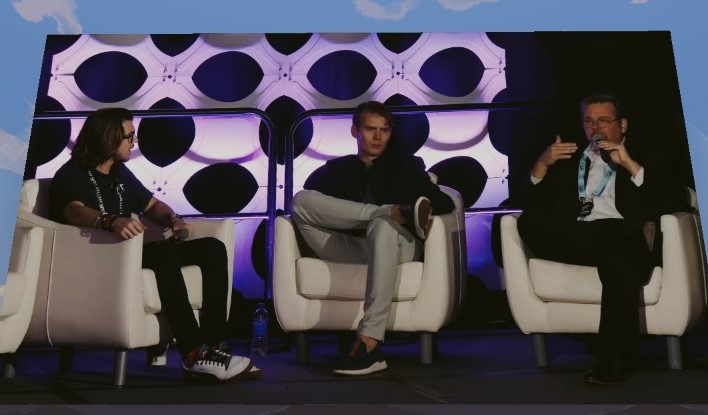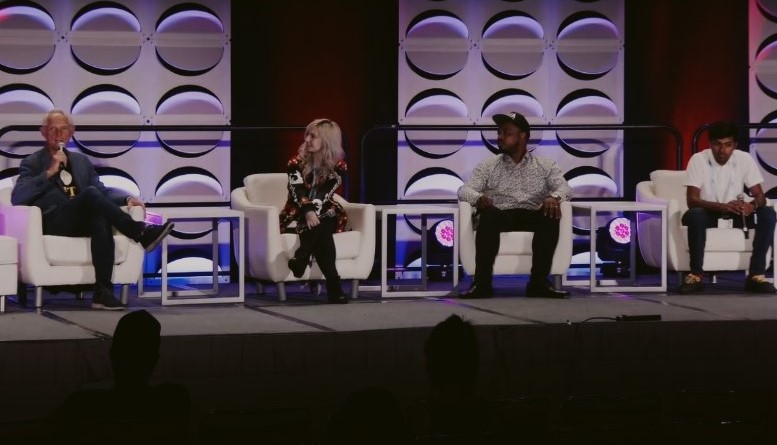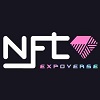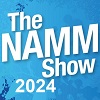NFT Expoverse Los Angeles: Day 3
NFT Expoverse Los Angeles: Day 3
Article by Angie Kibiloski
Day 3 (July 31st, 2022) of NFT Expoverse Los Angeles, was filled with several thought-provoking panel discussions. Those I attended educated me on more of the business side of NFTs, above and beyond the art and entertainment aspects from the previous 2 days, and I have to say I found them very interesting. The panels I’ll be briefly highlighting today are “Laws and Regulations for the Crypto/NFT World”, “Voting in the Metaverse: The Future of Online Elections”, and “Adapting Your Business Model to the Mass Adoption of Web3”. Since I’d finished visiting all of the exhibitor booths at their live event inside the Los Angeles Convention Center yesterday, I decided to check out their virtual space in Decentraland today, and stream the panels from there. I appreciate that they had this virtual option, for people who may not have been able to make it to the in-person show, even though I had some technical issues with some of the streams.
Decentraland is one of the popular Metaverse spaces, where you can own virtual land, on which you can build virtual environments for people to visit with their avatars, and is often a place for NFT events to host supplementary content. Their event space was created by RLTY, a Metaverse event building company, and can be seen here. During the event, it was an open environment to explore, perhaps chat with other attendees, and watch all of the panels on screens displayed around the space. There were 4 floors of the virtual event complex, which housed the lobby, where you could claim your POAP (Proof of Attendance Protocol) token, 3 stages streaming the live event panels, and an NFT art gallery, which displayed a selection of works that were submitted to their website gallery, with marketplace links in case you wanted to buy anything from the talented featured artists. Decentraland was a bit of a strain on my laptop graphics card, with quite a bit of streaming lag and required numerous site refreshes throughout the day, but all in all it was an enjoyable space in which to watch the panels from the comfort of my own home.
The 1st panel I want to highlight is “Laws and Regulations for the Crypto/NFT World”, which dealt with some of the legal pitfalls that NFT projects could fall into, whether that’s with handling IP usage, licensing rights, or how the wording of their whitepapers can either get them in or out of the regulatory fire. Firstly, and most straightforwardly, is the IP usage issue. There are a lot of projects that use existing IPs and alter them in a slight way, calling them “derivatives” or “parodies”. This may work for a project short-term, if they fly under the radar, but could land them in real, life-altering legal trouble if the IP they’ve “adapted” belongs to a company willing and able to sue them. Best practice…keep your project original and create your own IP, don’t take the “derivative” shortcut.
The next legal issue falls under “scams”, even if the project didn’t intend to scam their buyers. If a project makes claims about what a buyer can expect to get from owning their NFT, and then they don’t deliver, depending on how this promise was worded in the lead-up to the project launch, their collectors could sue them for breaching their promise and not delivering on the goods or extra benefits they were paid for. The advice is two-fold: Don’t over promise what you aren’t sure you can deliver, and if you’re a large enough project, consider having a lawyer look over your whitepaper and roadmap.
Another sticking point, which also has to do with wording, can get a project in hot water with the SEC, if they think your NFT project is actually a securities token. Most NFT projects, at least at the moment, are not securities, they’re simply digital collectibles. However, some projects throw around words like DAO (Decentralized Autonomous Organization) and fractionalized tokens. The SEC takes note of these terms because they can turn your token into a financial asset, which falls under their regulatory umbrella.
There are other legal issues like if marketplaces have liability in protecting buyers from scams, and the complicated licensing of projects who allow you commercial use of the NFTs you buy, etc., but those will have to wait for another time. The take away is simply this: whether you’re an independent artist or a large project, know the laws (so you won’t break them), and use your words wisely, they have meaning and they matter.
The 2nd panel, “Voting in the Metaverse: The Future of Online Elections”, discussed how Blockchain could be used for online voting in the future, and how it’s already being tested out in certain sectors. As has been mentioned before, the Blockchain is immutable, verifiable, and viewable by anyone who cares to look. That gives you permanence, security, and transparency, 3 things that could promote trust in a process that can seem, to some, to be tragically unreliable. Blockchain voting already exists within the NFT community, and is a secure way to ensure everyone who is eligible casts a single vote, and that their vote cannot be lost or altered. Certain countries, and even local governments in the United States, are trying out this method already, but the panel of speakers thinks that Blockchain voting on the Federal level in the US is about a decade away.
First, we’d need to get the population comfortable with this method, by utilizing it for non-government votes, like those held for school boards or other community projects where the members have a say on how things are run. Building trust in the process is the key 1st step. The benefits are great if we can get there, for all the points I already mentioned, as well as for convenience (especially for overseas voters), wider voter participation, and speed of counting votes.
Aside from the US, this is a globally beneficial voting system, particularly in countries where geography makes collecting votes tricky. An example the panel gave is Indonesia, a country made up of a system of islands, requiring a lot of workers to be deployed, and expenses to be paid to reach all voters. Not everyone can get to a voting place, or have a voting official reach them, but if they have even a little bit of an internet connection, they can vote online, and have it secured on the Blockchain. It’ll be interesting to follow the development of this topic in the next few years.
The 3rd and final panel I’ll mention today, “Adapting Your Business Model to the Mass Adoption of Web3”, spoke about how to transition your existing customers to the NFT side of your business, and deciding whether or not your business really needs to jump on that wagon just yet. There are a lot of companies right now who are seeing the boom of NFTs and thinking they should launch NFT collections, to get in on the fun. Some of them have been successful, and some of them have gotten a huge amount of pushback from their customer base.
When deciding if/how your company should get on board, you have to think about what benefits an NFT could give to your customers and their experience with your company. You need to have a clear reason why your NFT exists, not just because it’s the trendy thing to do. If you already have some sort of art or entertainment in your business model, like an animation studio or a comic book series for instance, all your NFT may need to be to get customers interested is a collectible, but if your business is something like a pizza delivery service, for example, a collectible jpg is probably going to be a flop, and your NFT needs more of a function. What could selling an NFT to your customer base get them, beyond owning an image? What utility could it have? For instance, would it get them early/discounted access to your real-world products, behind the scenes tours of your company, or act as an exclusive rewards program membership?
If you do choose to incorporate NFTs, there’s the obstacle of convincing your non-NFT-savvy customer base that NFTs can benefit them, and aren’t a big scam like the headlines splashed across their screens sometimes claim. This will require a little educational outreach on your part, an easy onboarding ramp, and a product that they want enough to get beyond the knee-jerk reaction of “NFTs bad.” You may end up losing some existing customers, but you’ll gain even more as more and more businesses, and the culture at large, move towards NFTs and a Web3 philosophy.
That wraps up my coverage of the 3-day NFT Expoverse Los Angeles event, at least as far as the panels are concerned. I have so much more I could say about them all, so I may do lengthier articles on each topic at a later date. It’s difficult to condense these topics down into little snippets, and fully do them justice. I really enjoyed bolstering my knowledge base on all things NFT related, over all 3 days, and finding out about new projects hitting the marketplaces and the Metaverse in the coming months. If you want to know more about Decentraland, visit https://play.decentraland.org, and to see a list of all the speakers who attended the event, check out https://nftexpoverse.com/los-angeles.

